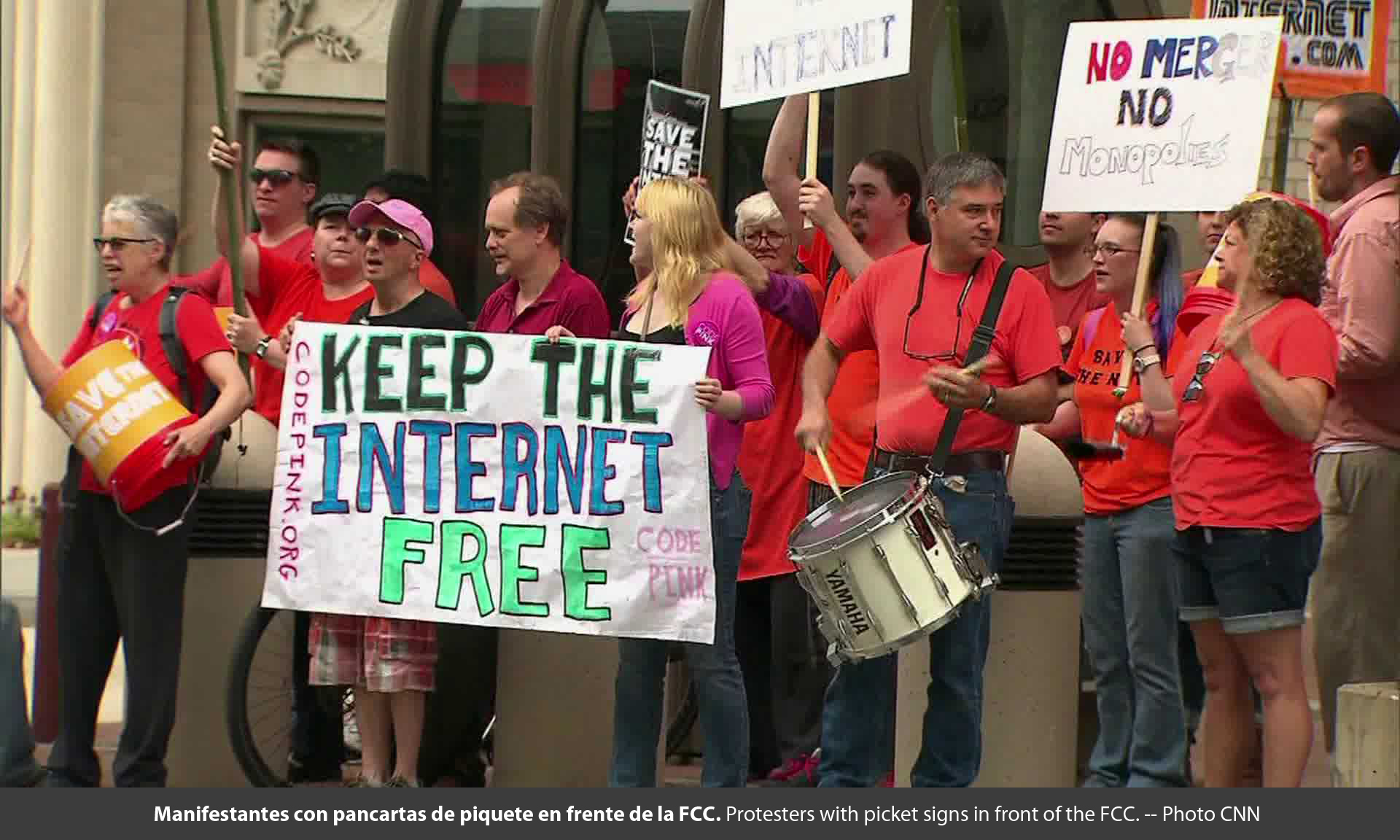by John Merline
“It’s not a government takeover of the Internet.” That was the mantra of those who backed the Federal Communication Commission’s “net neutrality” rules, which the FCC approved a little over a year ago.
“Not only are the new rules not a government takeover,” argued one supporter in Variety, “they are well in keeping with how communications have been successfully fostered and regulated in America in the past.”
The rules were only meant to keep the Internet “free and open,” advocates said. All the government was doing was blocking ISPs from discriminating against users by charging more for faster speeds.
But to impose “net neutrality,” the FCC reclassified the Internet so that it could regulate it in the same way it regulated the telephone monopolies. FCC chairman Tom Wheeler promised that — despite the fact the FCC had just granted itself wide-ranging control over ISPs — it would use a “light touch” when it came to regulating ISPs.
But now, 12 months later, the FCC tipped its heavy hand with a proposal for a new set of regulations that could, as the Morning Consult put it, “reshape the tech industry.”
The proposed new rules don’t have anything to do with “net neutrality.” They are about privacy. Now that the FCC can do so, Chairman Tom Wheeler has decided that the government should impose what it determines are the appropriate privacy protections on all Internet service providers.
On the surface, the purpose of the rules seems perfectly reasonable. “Consumers should have effective control over how their personal information is used and shared by their broadband service providers,” Wheeler says.
In practice, however, it would anything but simple or straightforward.
As the Morning Consult notes, “the impact of new FCC rules on the industry would be huge.”
For one thing, a new set of FCC rules would conflict with long-standing privacy rules set by the Federal Trade Commission. Data-hogging websites sites wouldn’t have to comply with the stricter FCC rules.
In a letter to the FCC, various “consumer advocacy” groups said those FTC rules aren’t good enough, and want the commission to “exercise the full extent of its rule-making authority to protect consumer privacy.”
Industry groups say the result would be “regulatory chaos” as businesses try to figure out what rules apply where.
The point is that anyone who thought the FCC had finished its work when it imposed “net neutrality” is sorely mistaken.
The commission’s privacy rules will only be the first of many as regulators flex their newly acquired Internet muscles and as advocacy groups, well-connected businesses, or anyone looking to get a regulatory leg up on the competition will be pressuring the commission to add new rules, always wrapped in a “good for the consumer” package.
Further intrusion into the ISP world will only worsen the damage already being done by the FCC’s decision to treat the 21st century Internet like a 20th century telephone monopoly.
As FCC Commissioner Ajit Pai explained in a recent speech at the Heritage Foundation, in just the first year, “growth in broadband investment has flat-lined,” and smaller ISPs “have reduced investment in the communities they serve.” As an example, he noted that Verizon (VZ) recently decided to acquire AOL for $4.4 billion because “it made more sense than increasing fiber deployment.”
Pai, who fiercely opposed the FCC’s actions, says home broadband adoption has declined for the first time “since the advent of the commercial Internet.”
He notes that the rule is hampering innovative services like T-Mobile’s (TMUS) Binge On program, which lets customers stream videos without it counting against their data usage. Despite the obvious consumer benefit, the FCC thinks Binge On might violate the government’s new Internet “conduct standard,” and so has opened an investigation.
“At least three other companies have received similar treatment,” Pai noted.
Pai and others had warned about all these outcomes from the get go. Those who are surprised by the FCC’s actions over the past year have only themselves to blame.



